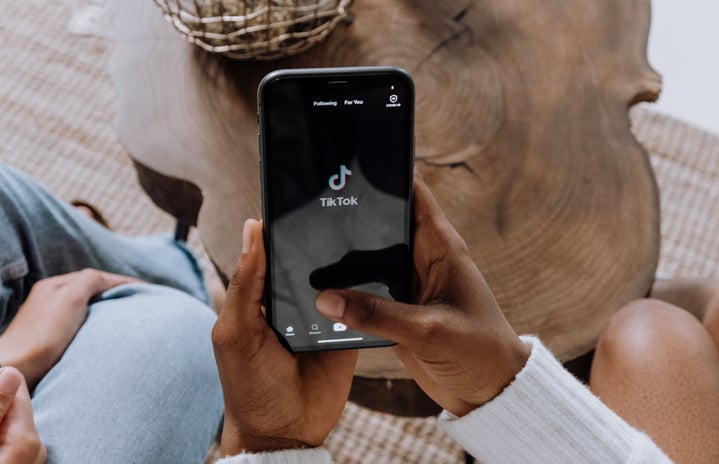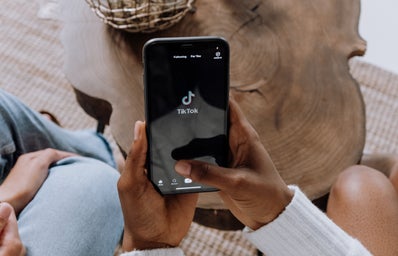When Gypsy-Rose was released from prison this past December, the internet did what it does best, sensationalizing her story and creating a spectacle out of her most traumatic experiences. Not long after, the trajectory of the Gypsy-Rose online persona became one we see too often: Becoming a spectacle for the internet, becoming idolized and admired, then very quickly becoming the controversial subject of many thinkpieces seeking to “call out problematic behavior.”
This evolution of how Gypsy-Rose is perceived by an extremely online audience felt, to me and many others, jarring and almost dystopian. Seeing an abuse victim turned murderer be subject to the same treatment of idolization followed very quickly by scrutiny, that your favorite popular pretty female influencer has probably been subject to was, at the very least, odd.
I learned about Gypsy-Rose’s story several years ago, and have always held the belief that she did not belong in jail, but rather a mental health facility to be treated for the lifetime of psychological and physical abuse she endured. So, like everyone, I was excited for her release, hopeful that she would finally experience the normal life she deserved and never got to have, and a chance to be rehabilitated in an appropriate space, rather than a prison cell. The only media attention I expected to see in relation to her release was one, or maybe even a handful of interviews with some journalists before she disappeared into a much deserved mundane life. But, of course, that is no longer enough to satisfy the hungry gaze of true crime fanatics, and Gypsy-Rose was very quickly turned into an icon. From getting invited to red carpets to being featured on the pages of famous influencers, Gypsy-Rose was no longer a real person who experienced trauma and tragedy, but somewhat of a celebrity to be gawked at and even idolized.
Then, just as quickly as she became influential, Gypsy-Rose became “problematic.” The TikToks psychoanalyzing her behavior started rolling in and the comments went from “obsessed with her ” to “I always knew there was something off about her.” All the callout videos left me questioning what these people expected.” To be clear, Gypsy-Rose hasn’t done anything her fanbase wasn’t aware of before they forced her into fame. We all knew what she was subjected to and we all knew what she was in prison for. Yet, Gypsy-Rose was somehow given the same treatment of an influencer who got exposed for a past wrongdoing. Online spectators now felt entitled to hold her accountable.
At this point, you might be wondering how Amber Heard comes into play. A lot can be said about the Amber Heard and Johnny Depp trial and the fiasco that followed. I’ve personally been using it as somewhat of a litmus test to determine where people stand on believing victims. But how could it possibly relate to the Gypsy-Rose situation?
The first point I want to make to support this seemingly absurd comparison is the issue of sensationalism. Social media and the popularity of true crime have made it too easy to turn a real story into, essentially, gossip. We have become so obsessed with finding the next meme that we neglect to consider the real person often at the center of them.
In 2018, Amber Heard published an op-ed titled “I spoke up against sexual violence — and faced our culture’s wrath.” Her article addressed an all too common experience that most women are familiar with: society’s tendency to protect the abuser and the backlash women face when speaking up about abuse. She referenced her abuse anecdotally as a means of relating herself to the universal struggle she was discussing, no names mentioned. Yet this was enough to incite a lawsuit from her ex-husband, Johnny Depp, alleging that the article’s implication of abuse were defamatory. Very quickly, the wrath Heard mentioned in her article would soon be nothing compared to the wrath she would endure throughout the trial.
There are so many angles of misogyny to discuss throughout this whole trial and the public discourse surrounding it, namely the precedent it has set for future victims of abuse speaking out facing legal backlash. But, unfortunately, the precedent on how abuse victims are treated by the public court of opinion has been set a very long time ago, and Heard has joined the endless stream of women who will forever be labeled a liar.
Televising the trial, which is quite an uncommon occurrence for cases regarding domestic-violence allegations, gave the insatiable true crime content creators yet another case to obsessively analyze online to the point of gossiping. A common understanding began to spread among consumers of this content that Heard must be a liar, and Depp became somewhat of a martyr, and since Amber Heard was obviously lying, it was okay to mock, degrade, and turn her into our new favorite meme.
The facts of the case, which proved a pattern of abuse on Depp’s part, no longer mattered, because the sensationalism of the trial had bastardized it to where no one was even searching for the truth, but for new content; a funny reaction pic, a new TikTok sound, or a new true crime series. The trial was no longer about what happened to Amber Heard, but about Amber Heard herself. Everyone was tuning in to see her get owned by Depp and his team, because to them, she was already guilty, making her public humiliation an acceptable form of entertainment.
Like Gypsy-Rose, Heard was robbed of her humanity. While Gypsy’s was taken under the guise of admiration, Amber’s dehumanization came in the form of vitriol. In practice, are they really that different?
Moreover, would such dehumanizing sensationalism be extended to a man in their exact positions?
Johnny Depp was the abusive party in Amber’s case, yet the public has deemed him the victim, because Heard’s reaction to the abuse was more than enough to revoke her victim status. In Gypsy-Rose’s case, her boyfriend, Nick Godejohn, a man who had pre-existing homicidal tendencies, took advantage of her desperation and naivety to act out his fantasies, and now that the public has decided to turn on her, Nick became a secondary victim to Gypsy-Rose, as the whole situation was now decidedly calculated by her.
This leads me to the second point as to why this comparison came to me, the idea of a “perfect victim.” Recently, I heard the phrase “a perfect victim is a dead one,” and I think it perfectly describes the motivation behind the public reaction to both of these women. The fight to survive your abuse has become demonized. We long to advocate for people who are no longer here, who didn’t or couldn’t find back, who have never lied, or made mistakes, or killed their abusers, or stood against them in trial, sobbing.
If both of these women’s situations had played out exactly the same, only with both of them dead at the hands of their abusers, imagine how different the narrative would be? Naively, I want to imagine that the fingers pointed at them would instead be turned to their abusers. In reality, the discourse online would likely culminate into “why didn’t she leave?” and “why didn’t she kill him/her in self defense?”
After the emergence of the #MeToo movement and open conversations about abuse online, you would think we are progressing towards a society that supports victims first and understands the complexity and nuance of these instances. But, unfortunately, social media is a double edged sword. While it has facilitated open conversations about “taboo” topics, it has also turned sensationalism and victim blaming into overdrive, giving everyone a turn on the stage. No longer is it a handful of ignorant people with a platform; now, entire communities can easily be formed on the basis of ignorance — again, double edged sword.
I really want to note that the narrative of a manipulative and calculated Gypsy-Rose started after her release from prison. Incarcerated Gypsy-Rose was, for all intents and purposes, a perfect victim. The online true crime community loved a good “in defense of Gypsy-Rose” stance. At what point does a woman become too happy to be considered a victim? What level of success is enough to revoke that label?
Should Gypsy-Rose have been handed fame and success after her release? In my opinion, absolutely not. But when the same people who gave her those things, also decide that her enjoying them makes her a villain, who is to blame? This happens too often; we hand over fame and attention, turning a normal person into a spectacle, only to snatch it back, accusing them of claiming an unrightful spot on our feeds.
The public perception of both Amber Heard and Gypsy-Rose following their individual battles has been riddled with misogynistic spectatorship. We so desperately want these women to fit into our idea of a “victim.” Their trauma and most vulnerable moments became our thinkpieces and our social media trends. We have all moved on to the next thing, but they are left with their trauma for the rest of their lives. When they were in most need for humanity and compassion, we pointed and laughed, we got creative with our insults, and tossed their stories when we were done.


